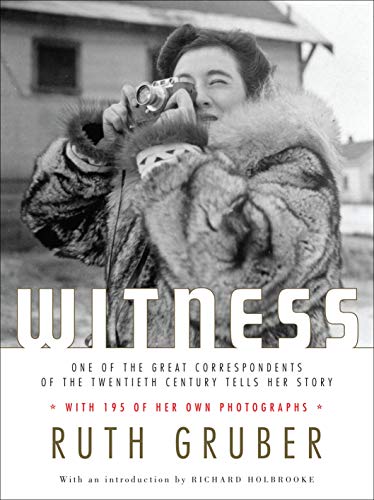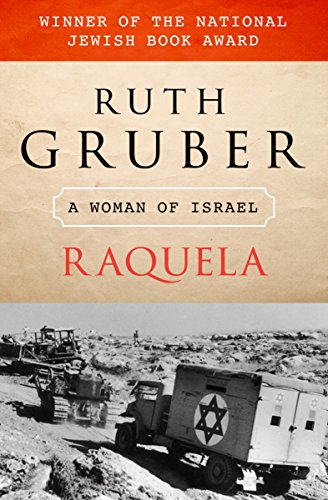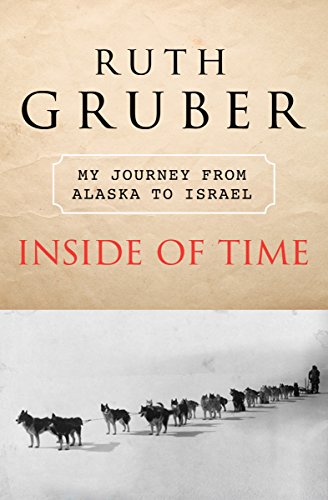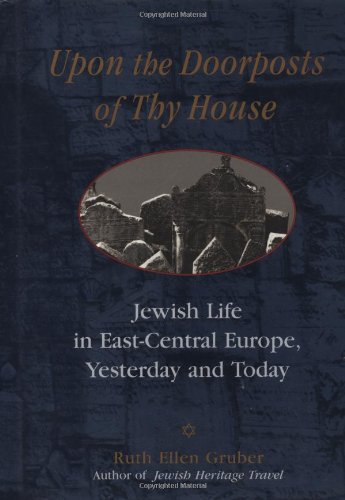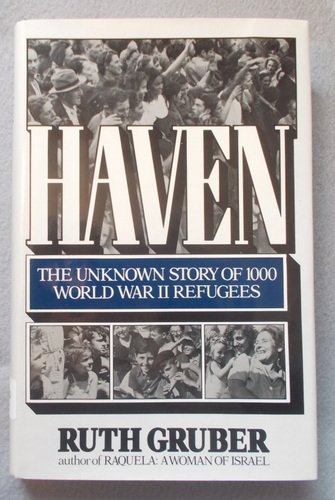Ruth Gruber (September 30, 1911 – November 17, 2016) was an American journalist, photographer, writer, humanitarian, and a United States government official.
Born in Brooklyn to Russian Jewish immigrants, she was encouraged to pursue her dream of becoming a writer. At age 20 she received a doctorate, which was awarded for her dissertation on Virginia Woolf. In the 1930s she established herself as a journalist writing about women under fascism and communism, traveling as far as the Soviet Arctic. As World War II raged in Europe, she turned her attention to the crisis of Jewish refugees: acting on behalf of the Roosevelt administration, she escorted 1,000 refugees from Italy to the United States and recorded their stories. She witnessed the scene at the Port of Haifa when Holocaust survivors on the ship Exodus 1947 were refused entry to British-controlled Palestine, and she documented their deportation back to Germany.
In subsequent years, she covered the evacuation of Ethiopian Jews to Israel. She was a recipient of the Norman Mailer Prize.
Table of Contents
- 1 Early life
- 1.1 Haven: The Dramatic Story of 1,000 World War II Refugees and How They Came to America
- 1.2 Witness: One of the Great Correspondents of the Twentieth Century Tells Her Story
- 1.3 Raquela: A Woman of Israel
- 1.4 Exodus 1947: The Ship That Launched a Nation
- 1.5 Collected Memoirs: Ahead of Time, Haven, and Inside of Time
- 1.6 Inside of Time: My Journey from Alaska to Israel
- 1.7 Ahead of Time: My Early Years as a Foreign Correspondent
- 1.8 Upon The Doorposts of Thy House: Jewish Life in East-Central Europe, Yesterday and Today
- 1.9 Haven: The Unknown Story of 1,000 World War II Refugees
- 1.10 Virtually Jewish: Reinventing Jewish Culture in Europe
Early life
Ruth Gruber was born in Brooklyn, New York, one of five children of Russian Jewish immigrant parents, Gussie (Rockower) and David Gruber. She dreamed of becoming a writer and was encouraged by her parents to obtain higher education. She matriculated at New York University at the age of 15. At eighteen she won a postgraduate fellowship at the University of Wisconsin–Madison. In 1931, she won other fellowship from the Institute of International Education to laboratory analysis in Cologne, Germany. She usual a Ph.D. from the University of Cologne in German Philosophy, Modern English Literature, and Art History, becoming (at that time) the youngest person in the world to get a doctorate. The subject of her dissertation was Virginia Woolf. While in Germany, Gruber witnessed Nazi rallies and after completing her studies and returning to America, she brought the attentiveness of the dangers of Nazism.
Gruber’s writing career began in 1932. In 1935, the New York Herald Tribune asked her to write a feature series nearly women under Fascism and Communism. While practicing for the Herald Tribune, she became the first foreign correspondent to fly through Siberia into the Soviet Arctic.
Last update 2021-08-06


